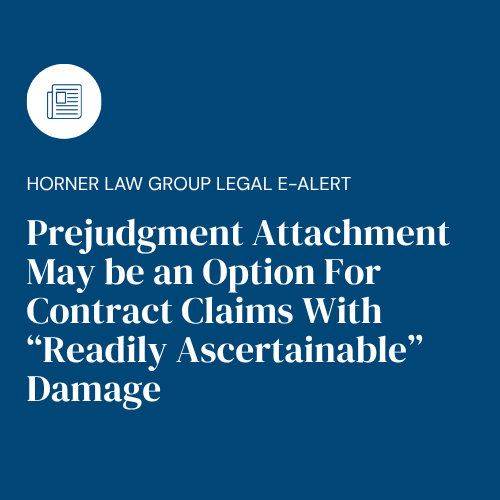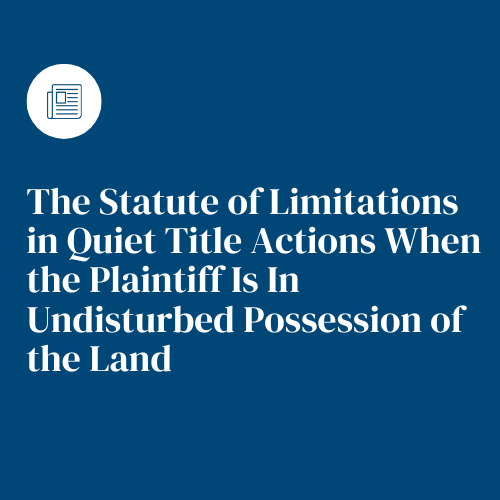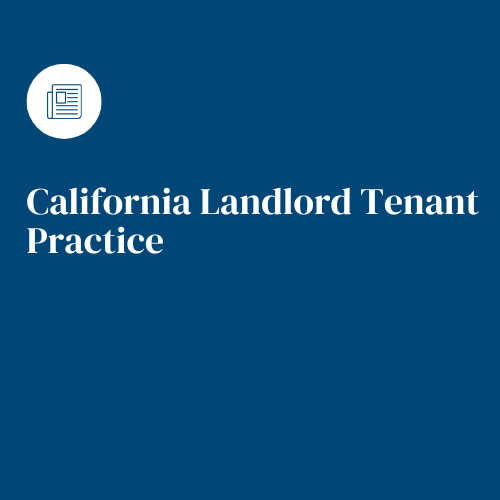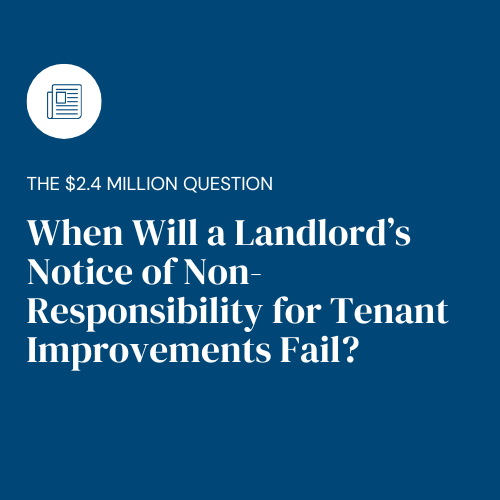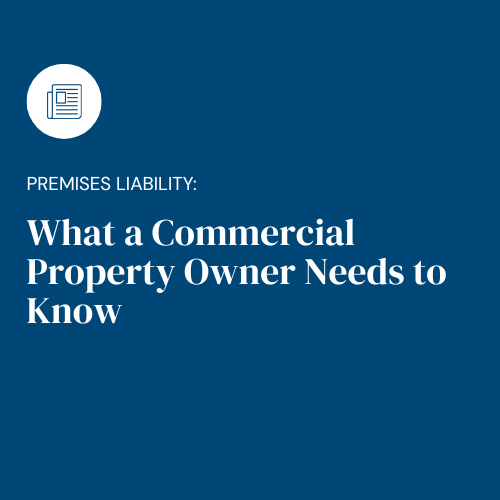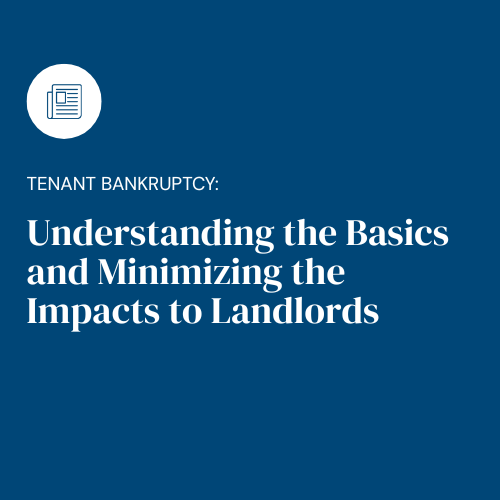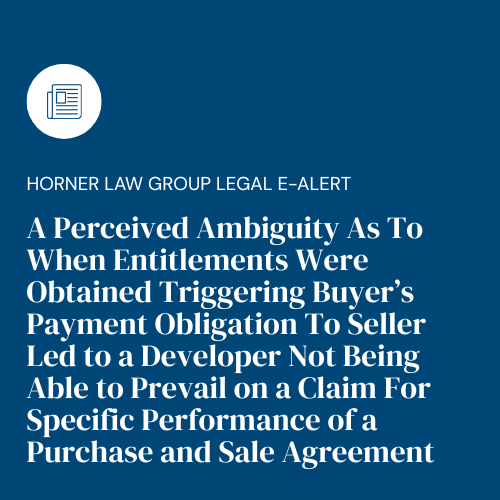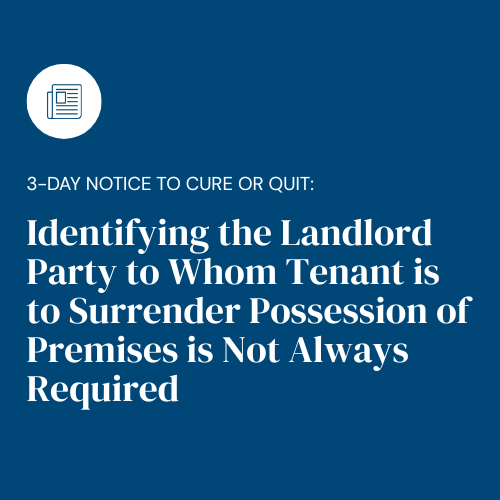A Perceived Ambiguity As To When Entitlements Were Obtained Triggering Buyer's Payment Obligation To Seller Led to a Developer Not Being Able to Prevail on a Claim For Specific Performance of a Purchase and Sale Agreement
CONTACT
Cliff Horner
Email Address: chorner@hornerlawgroup.com
Pursuant to a May 2018 California Court of Appeal ruling, a Buyer of commercial real property could not prevail on a claim of specific performance with respect to a Purchase and Sale Agreement ("PSA") despite spending eight years and over $600,000 on the purchase and seeking entitlements, because the Buyer failed to comply with every one of its obligation under the PSA - specifically, payment of $3 million dollars to Seller within 30 days of "obtaining the entitlements."
(See Tierney v. Javaid (May 31, 2018) 233 Cal.Rptr.3d 774).
Summary:
In this case, Buyer and Seller entered into a PSA in 2002 wherein Buyer agreed to purchase from Seller a gas station in San Francisco on which property Buyer sought to develop and build at least 22 condominiums. The PSA required the purchase price of approximately $3.4 million to be paid by Buyer to Seller in two phases. Under the First Phase, Buyer was required to pay 10% of the purchase price by August 2004 which Buyer timely paid. Under the Second Phase which became the subject of the litigation, Buyer was to pay the remaining 90% of the purchase price (approximately $3 million dollars) 30 days after Buyer obtained all "Entitlements", with "Entitlements" being defined under the PSA as "all permits, approvals and other entitlements required by the [City] with respect to the construction and development of at least [22] residential units." "Entitlements" did not include "ministerial building permits."
In August 2012, the San Francisco Planning Commission held a Conditional Use Permit ("CUP") hearing and approved the CUP for demolition of the gas station and construction of a mixed-use building with 24 residential units. As a condition of approval, the Planning Commission directed Buyer to perform further work with the Planning Commission and neighborhood groups on the building design. The Planning Commission also required that the final approved plans for the building design be presented at a future meeting as "an informational item."
The Buyer's final building design was then presented at the Planning Commission's June 6, 2013 meeting. Also then in June 2013, Buyer learned that Seller had listed the Property for sale and litigation ensued wherein Buyer sought specific performance of the PSA which, if Buyer was successful, would require Seller to sell the Property to Buyer pursuant to the PSA. However, the Court held, inter alia, that at the August 2012 CUP hearing the "Entitlements" were obtained, which under the PSA required Buyer to make its Second Phase payment of approximately $3 million dollars to Seller within 30 days of that date. Buyer argued that the Entitlements were not obtained as of the August 2012 CUP Hearing because the Planning Commission directed Buyer to perform further work with the Planning Commission and neighborhood groups regarding the building design and that the building design was to be presented at a future meeting. The Court disagreed with Buyer and found that because the Entitlements were obtained as of August 2012 and Buyer failed to make payment of the Second Phase within 30 days of obtaining the Entitlements, Buyer had not satisfied all obligations required of it under the PSA and therefore could not prevail on a claim for specific performance.
Take Away:
Since real property is inherently unique in nature and monetary damages will not typically be found by law to adequately compensate a party for the breach of a contract for its purchase, parties to the sale of real property may bring forth an action for specific performance of the purchase and sale agreement. However, Courts will not order specific performance if the party seeking specific performance has not satisfied its obligations under the contract. Therefore, it is critical that parties to a PSA concerning real property be mindful and aware of any of their obligations under the PSA and ensure that the PSA is drafted in such a way that the obligations triggering their performance are clear and unambiguous, especially as to the timing of and conditions precedent to payment obligations.
*The above does not constitute legal advice and should not be acted upon without seeking advice from a licensed lawyer.
Subscribe to Horner Law Group Mailing Lists
Get the latest significant legal alerts, news, webinars, and insights that affect your industry.




